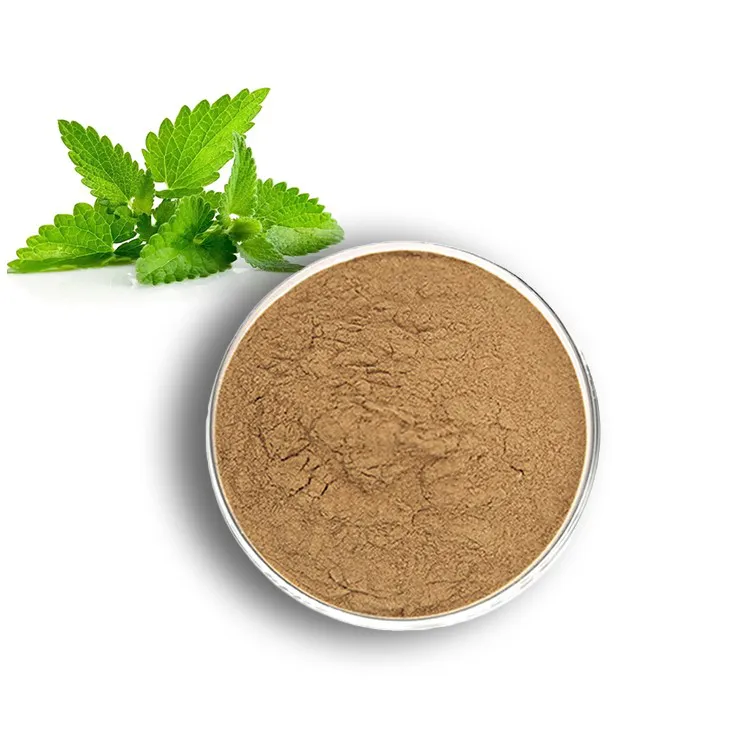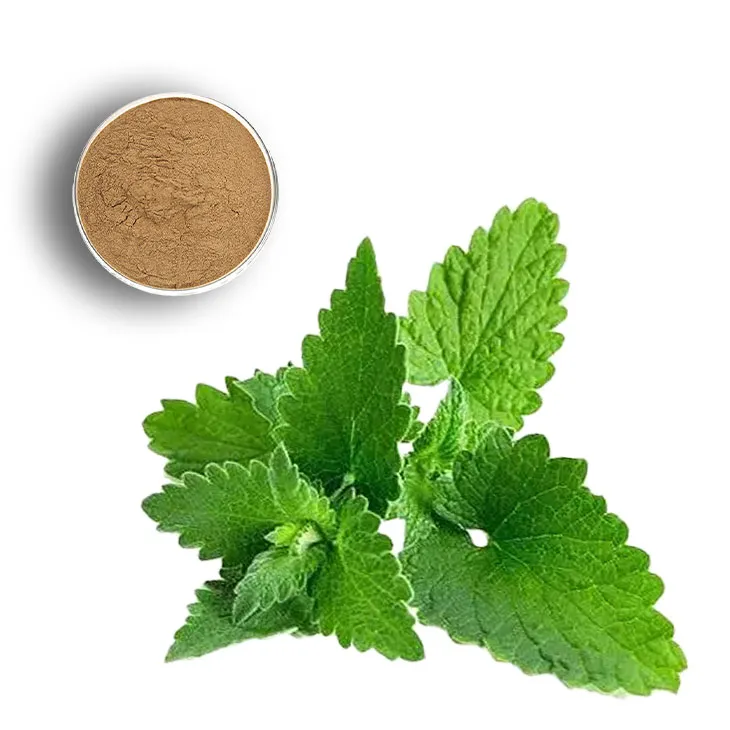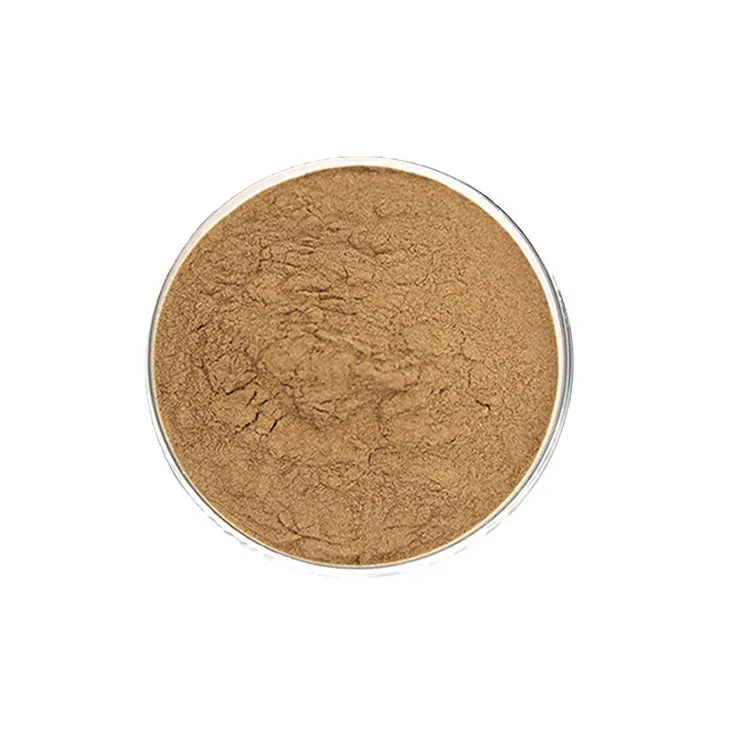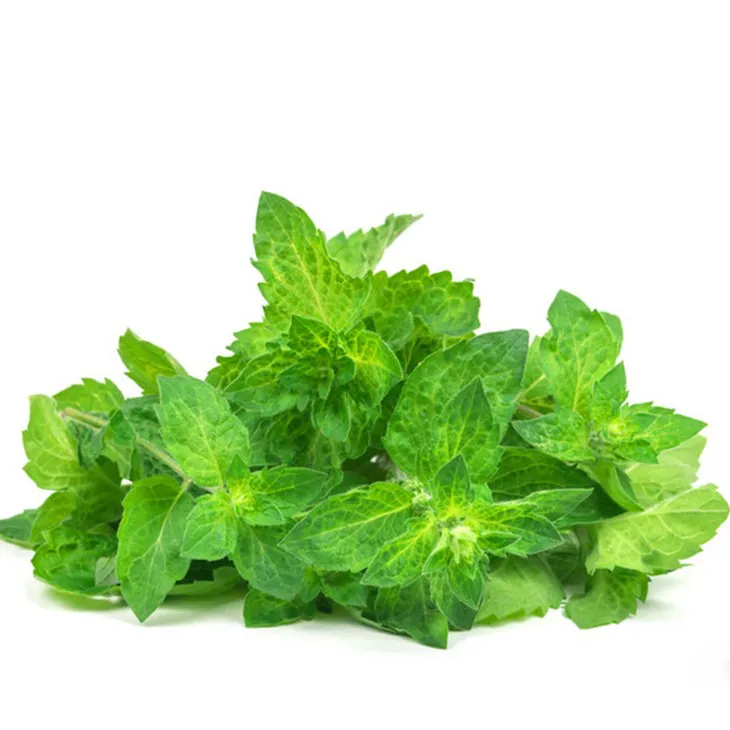- 0086-571-85302990
- sales@greenskybio.com
Lemon Balm Extract: The New Darling of Beauty Procedures
2024-11-14

1. Introduction
In the ever - evolving world of beauty, new ingredients are constantly emerging. One such ingredient that is quickly making a name for itself is Lemon Balm Extract. Derived from the lemon balm plant (Melissa officinalis), this extract is becoming a sought - after component in various beauty products. Its popularity stems from the numerous benefits it offers for both skin and hair. This article aims to provide a comprehensive understanding of Lemon Balm Extract, from its chemical makeup to its practical applications in the beauty industry and how it stacks up against other well - known natural beauty ingredients.

2. Chemical Composition of Lemon Balm Extract
Lemon balm extract is rich in a variety of chemical compounds that contribute to its beneficial properties.
2.1 Terpenoids
Terpenoids are one of the major components of lemon balm extract. These compounds have antioxidant properties. For example, rosmarinic acid, a type of terpenoid, is known for its ability to scavenge free radicals in the body. Free radicals can cause damage to cells, which can lead to premature aging of the skin and hair problems. By neutralizing these free radicals, rosmarinic acid helps in maintaining the health and vitality of the skin and hair.
2.2 Flavonoids
Flavonoids present in lemon balm extract also play an important role. They are known for their anti - inflammatory properties. Luteolin, a flavonoid found in lemon balm, can help reduce inflammation in the skin. Inflammatory conditions such as acne can be alleviated as luteolin helps to soothe the irritated skin. Moreover, flavonoids also contribute to the antioxidant capacity of the extract, further protecting the skin and hair from oxidative stress.
2.3 Phenolic Acids
Phenolic acids in lemon balm extract, like caffeic acid, are involved in various biological activities. Caffeic acid has been shown to have antibacterial effects. This is particularly beneficial for the skin as it can combat the bacteria that are responsible for acne. Additionally, phenolic acids also work in synergy with other compounds in the extract to enhance its overall beneficial effects on skin and hair health.

3. Benefits for Skin
Lemon balm extract offers a wide range of benefits for the skin.
3.1 Acne Reduction
As mentioned earlier, the antibacterial properties of lemon balm extract, mainly due to compounds like caffeic acid, are effective in reducing acne. The bacteria Propionibacterium acnes is one of the main culprits behind acne breakouts. Lemon balm extract can inhibit the growth of this bacteria, thereby reducing the occurrence of acne. Moreover, it also helps in reducing the inflammation associated with acne, which can prevent the formation of acne scars.
3.2 Wrinkle Reduction
The ability of lemon balm extract to stimulate collagen production is crucial for wrinkle reduction. Collagen is a protein that gives the skin its elasticity and firmness. As we age, the production of collagen decreases, leading to the formation of wrinkles. The components in lemon balm extract, such as terpenoids, can stimulate fibroblasts in the skin to produce more collagen. This helps in filling in the fine lines and wrinkles, making the skin look smoother and more youthful.
3.3 Skin Hydration
Lemon balm extract also has the potential to improve skin hydration. It helps in maintaining the skin's moisture barrier. A healthy moisture barrier prevents water loss from the skin, keeping it hydrated and supple. The flavonoids in the extract can enhance the function of the skin's lipid layer, which is an important part of the moisture barrier.

4. Benefits for Hair
When it comes to hair, lemon balm extract has several advantages.
4.1 Dandruff Reduction
The antibacterial and anti - inflammatory properties of lemon balm extract are beneficial for reducing dandruff. Malassezia, a type of fungus, is often associated with dandruff. The extract can combat the overgrowth of this fungus and reduce the inflammation on the scalp caused by it. This helps in getting rid of dandruff flakes and soothing an itchy scalp.
4.2 Hair Growth Promotion
Lemon balm extract can also promote hair growth. It improves blood circulation in the scalp. Good blood circulation ensures that the hair follicles receive an adequate supply of nutrients and oxygen. Additionally, the antioxidant properties of the extract protect the hair follicles from damage caused by free radicals, which can otherwise lead to hair loss. By maintaining the health of the hair follicles, lemon balm extract encourages new hair growth.

5. Lemon Balm Extract in Beauty Products
Lemon balm extract is being increasingly incorporated into various beauty products.
5.1 Skincare Products
- In cleansers, lemon balm extract can help in removing dirt, oil, and bacteria from the skin while also providing its antibacterial and anti - inflammatory benefits.
- Moisturizers containing lemon balm extract can improve skin hydration and also offer protection against environmental damage due to its antioxidant properties.
- Serums with lemon balm extract are formulated to target specific skin concerns such as wrinkles and acne. The concentrated form of the extract in serums can penetrate deeper into the skin to deliver its active ingredients.
5.2 Haircare Products
- In shampoos, lemon balm extract can help in cleansing the hair and scalp while reducing dandruff and promoting a healthy scalp environment.
- Conditioners with the extract can improve the manageability of the hair by smoothing the hair cuticles. They also provide nourishment to the hair strands, making them stronger and less prone to breakage.
- Hair masks are another product category where lemon balm extract is used. These masks are applied to the hair for a more intensive treatment. They can deeply nourish the hair follicles, promote hair growth, and improve the overall health of the hair.
6. Comparison with Other Natural Beauty Ingredients
When compared to other popular natural beauty ingredients, lemon balm extract has its own unique features.
6.1 Aloe Vera
Aloe vera is well - known for its soothing and moisturizing properties. While both aloe vera and lemon balm extract can hydrate the skin, lemon balm extract has an edge in terms of its antibacterial and anti - wrinkle properties. Aloe vera is mainly used for immediate relief of skin irritation, whereas lemon balm extract can be used for long - term skin health improvement, such as reducing the signs of aging.
6.2 Tea Tree Oil
Tea tree oil is famous for its strong antibacterial and antifungal properties. However, tea tree oil can be quite harsh on the skin and hair if not used properly. Lemon balm extract, on the other hand, is gentler while still providing effective antibacterial benefits. For those with sensitive skin or hair, lemon balm extract may be a better alternative.
6.3 Argan Oil
Argan oil is rich in fatty acids and is excellent for nourishing the hair and skin. It mainly focuses on providing moisture and shine. Lemon balm extract, in addition to some moisturizing effects, offers more in terms of anti - acne, anti - wrinkle, and dandruff - reducing properties. So, if one is looking for more comprehensive skin and hair benefits, lemon balm extract can be a valuable addition to argan oil - based products.
7. Conclusion
Lemon balm extract is indeed a promising ingredient in the beauty industry. Its diverse chemical composition gives it a wide range of benefits for both skin and hair. From reducing acne and wrinkles on the skin to reducing dandruff and promoting hair growth, it has proven to be a versatile and effective ingredient. As it continues to gain popularity, we can expect to see more innovative beauty products incorporating lemon balm extract. Moreover, its relatively gentle nature compared to some other natural ingredients makes it suitable for a wide range of users. Whether used alone or in combination with other ingredients, lemon balm extract is set to play an important role in the future of beauty procedures.
FAQ:
What are the main benefits of lemon balm extract for the skin?
Lemon balm extract has several benefits for the skin. Firstly, its antibacterial properties help in reducing acne. Secondly, it stimulates collagen production, which in turn aids in reducing wrinkles.
How does lemon balm extract promote hair growth?
The exact mechanism by which lemon balm extract promotes hair growth is not fully understood yet. However, it is believed that its various beneficial compounds work together to nourish the hair follicles, creating a healthier environment for hair to grow.
What are the chemical components in lemon balm extract that contribute to its beauty benefits?
Lemon balm extract contains a variety of chemical components. Some of the key ones include flavonoids, phenolic acids, and terpenes. These components contribute to its antibacterial, anti - wrinkle, and hair - promoting properties.
How does lemon balm extract compare to other natural beauty ingredients like aloe vera?
Compared to aloe vera, lemon balm extract has its own unique set of benefits. While aloe vera is well - known for its soothing and moisturizing properties, lemon balm extract focuses more on antibacterial effects for the skin and hair growth promotion. However, both are natural ingredients and can be used in different beauty products depending on the desired outcome.
Can lemon balm extract be used directly on the skin or hair?
Although lemon balm extract has many beneficial properties, it is not recommended to use it directly on the skin or hair without proper dilution. High - concentration extracts may cause irritation. It is usually incorporated into beauty products such as creams, shampoos, and serums at appropriate concentrations for safe and effective use.
Related literature
- The Chemical Composition and Cosmetic Benefits of Lemon Balm Extract"
- "Lemon Balm in Skin and Hair Care: A Comparative Study with Other Natural Ingredients"
- "New Insights into the Use of Lemon Balm Extract in Beauty Procedures"
- ▶ Hesperidin
- ▶ Citrus Bioflavonoids
- ▶ Plant Extract
- ▶ lycopene
- ▶ Diosmin
- ▶ Grape seed extract
- ▶ Sea buckthorn Juice Powder
- ▶ Fruit Juice Powder
- ▶ Hops Extract
- ▶ Artichoke Extract
- ▶ Mushroom extract
- ▶ Astaxanthin
- ▶ Green Tea Extract
- ▶ Curcumin
- ▶ Horse Chestnut Extract
- ▶ Other Product
- ▶ Boswellia Serrata Extract
- ▶ Resveratrol
- ▶ Marigold Extract
- ▶ Grape Leaf Extract
- ▶ New Product
- ▶ Aminolevulinic acid
- ▶ Cranberry Extract
- ▶ Red Yeast Rice
- ▶ Red Wine Extract
-
Oat Straw Extract Powder
2024-11-14
-
Grape Seed Extract
2024-11-14
-
Pine bark Extract Powder
2024-11-14
-
Purple Sweet Potato Extract
2024-11-14
-
Cactus Extract
2024-11-14
-
Shikonin
2024-11-14
-
Moringa powder
2024-11-14
-
Hedyotis Diffusa Extract
2024-11-14
-
Genistein
2024-11-14
-
Nutmeg Extract
2024-11-14





















